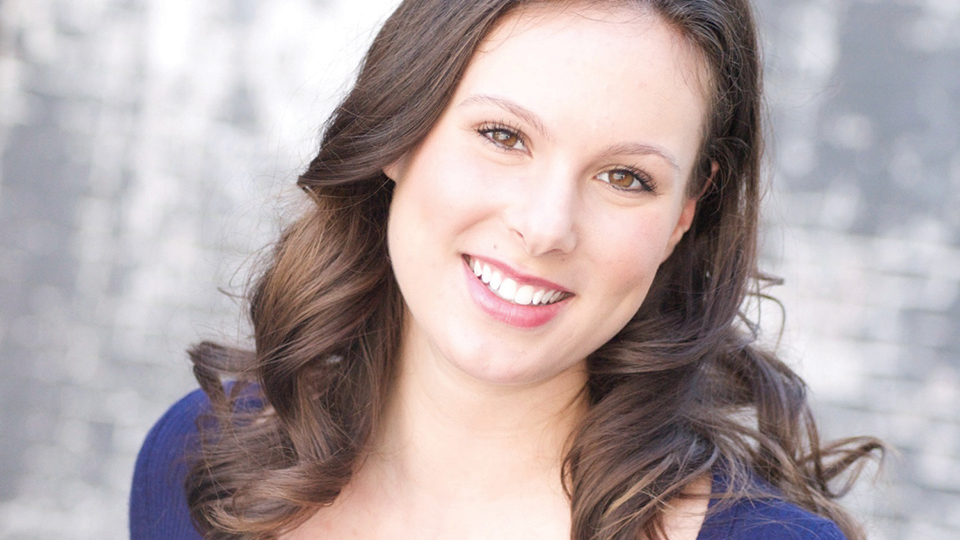by Adam Grybowski
Performing the role of Lady Anne in a recent production of Shakespeare’s Richard III, Rachel Handler ’09 had to find a way to connect with the character’s state of mourning. In the play, Lady Anne has lost her husband and father in law. Handler had never experienced either tragedies, but she had another significant source of grief to relate to. In 2012, Handler’s left leg was amputated from the knee down after a car spun out of control and collided with her vehicle on the New Jersey Turnpike.
“The experience of losing my leg gave me a wealth of knowledge for tapping into different emotions,” she says. And not just for drama. “It’s definitely helped me relish and cherish the happy moments. I can find the funny in awful situations. Comedy is a lot easier for me now.”
After the accident, Handler, now 28, wrestled with her future while coming to grips with a new, altered life. Aside from the trepidation of meeting the physical demands of acting, she worried about how she would be received at auditions. Would casting directors laugh her out of the room? Having experienced the challenges inherent in the field of acting, Handler had become accustomed to plans changing, but she couldn’t swallow the idea of a wholesale career change. “I couldn’t imagine another kind of life,” she says.
She decided to keep her eyes trained on the theater and her ultimate dream of performing on Broadway while becoming more open to work on TV and film, where, she says, more (though still limited) opportunities exist for disabled actors. In an essay in Backstage magazine, Handler wrote that less than two percent of roles on TV portray any kind of disability. Worse, disabled actors are rarely cast in those roles.
Bucking that established norm, the production of Richard III that Handler performed in last fall at the Secret Theatre in Long Island City employed 11 disabled actors in a cast of 15. Unlike in typical performances, Richard III was the only character portrayed without a disability. The role allowed Handler to fulfill a desire to expose her disability through performance, not just hide it.
Handler is aware of the pitfalls and cliches of becoming “an inspiration” to people because of her disability — she wrote a solo show about the very topic — but she has found her voice on speaking and writing about the challenges of being a disabled actor. Meanwhile, her entire conception of what it means to be an entertainer has expanded. “Before the accident, I was your typical musical theater actress, going after roles and performing the ones I got, and now performances and art have a higher purpose,” she says. “I want to do shows and create art that is more impactful on humanity and contributes to the community.”
Originally from Linwood, N.J., Handler enrolled at Westminster Choir College with the intention of becoming an opera singer. Under the influence of her new teachers, she remembered how much she loved to act and get into the skins of new characters, in addition to singing. It was a hobby she had pursued since age 8. “What I always loved about it,” she says, “was getting to play different characters from myself but also finding myself in those characters.”
In the summer after her junior year, she started working at Bucks County Playhouse in New Hope, Pa., where she continued to work for about a year after graduating. She performed in seven shows, landing her first role in a long-running production (Rider productions typically run for a long weekend). “They were all such amazing learning experiences and provided such motivation to keep going,” she says. She decided to move to Astoria in Queens, N.Y. Less than two years later, a trip on the New Jersey Turnpike turned her life upside down.
“It completely changed my life physically, mentally spiritually,” she says. “It’s a big transition, and I feel like I’m still going through it.”

